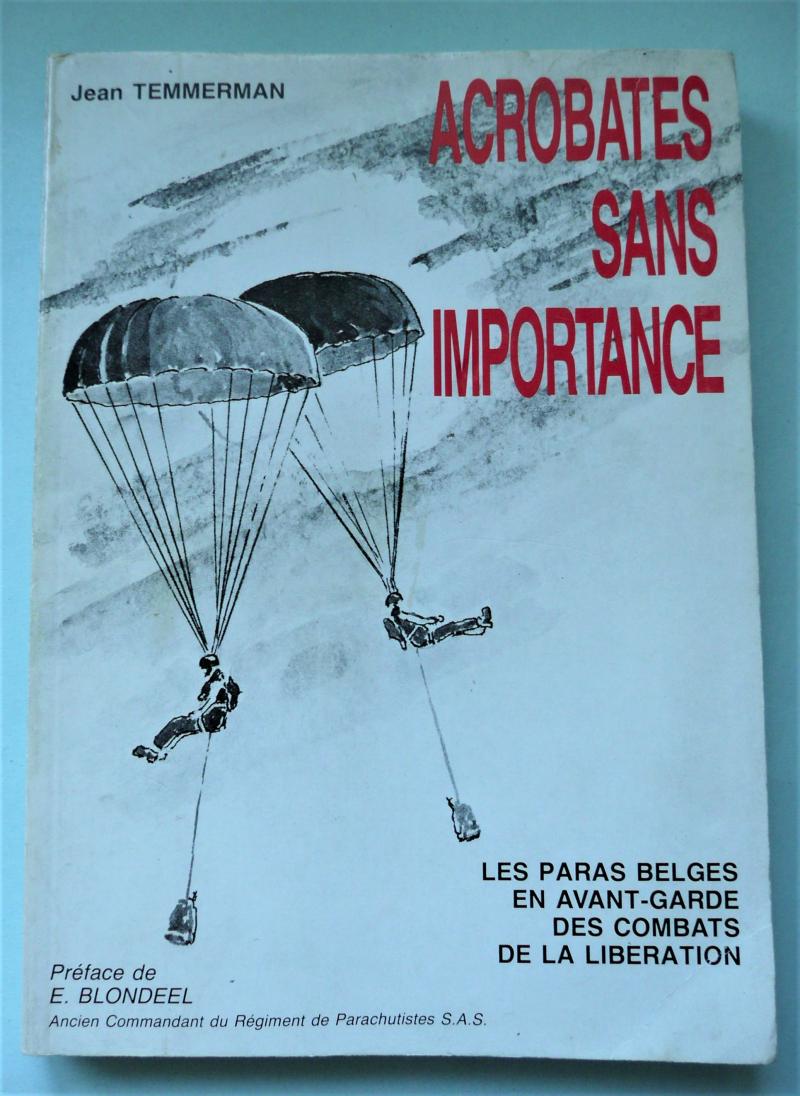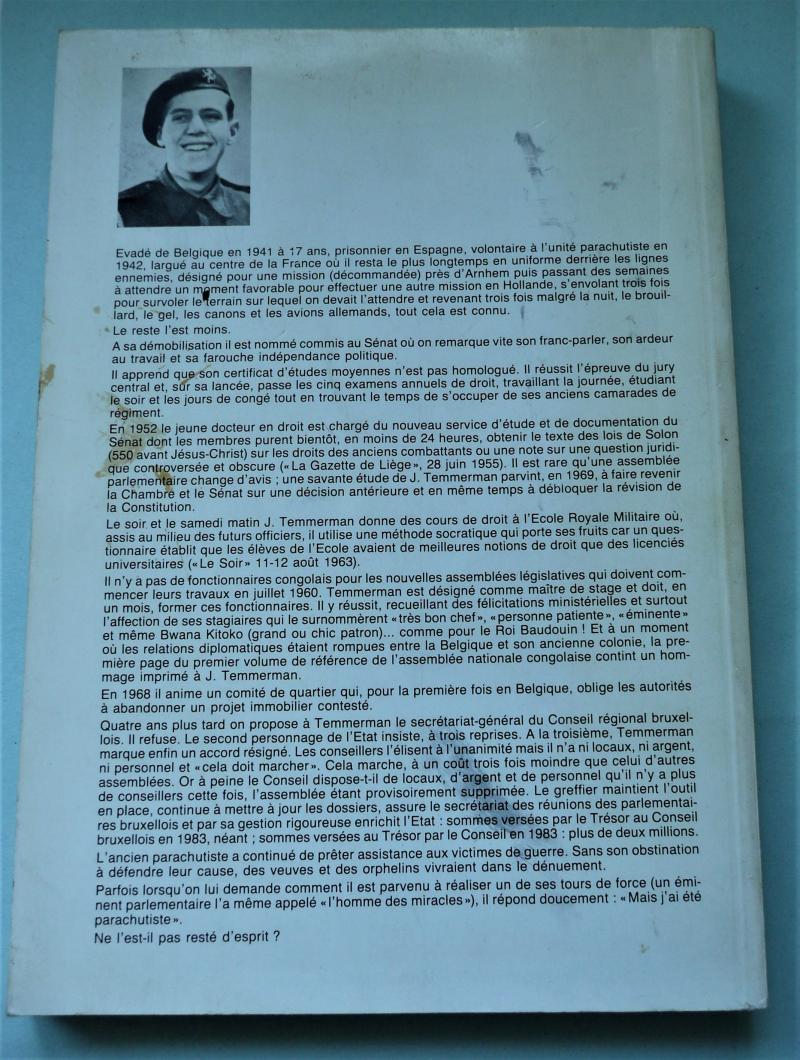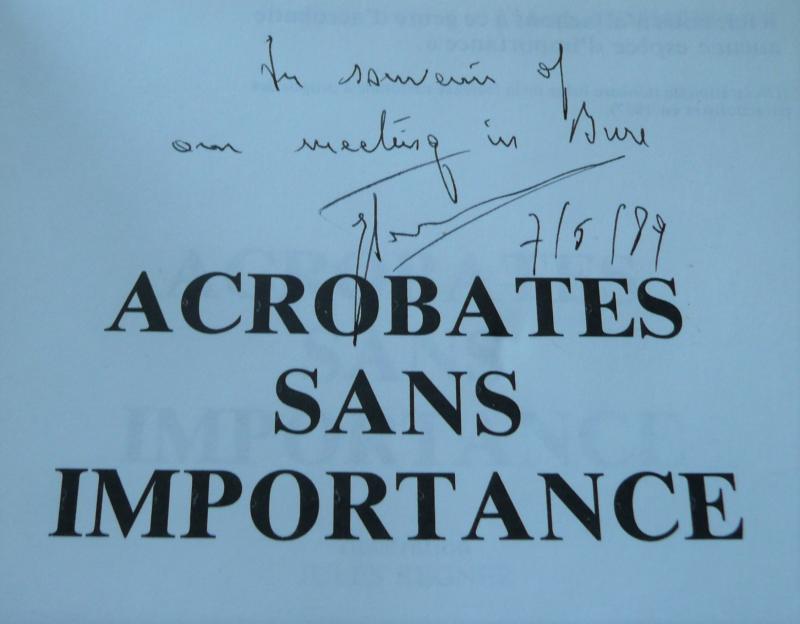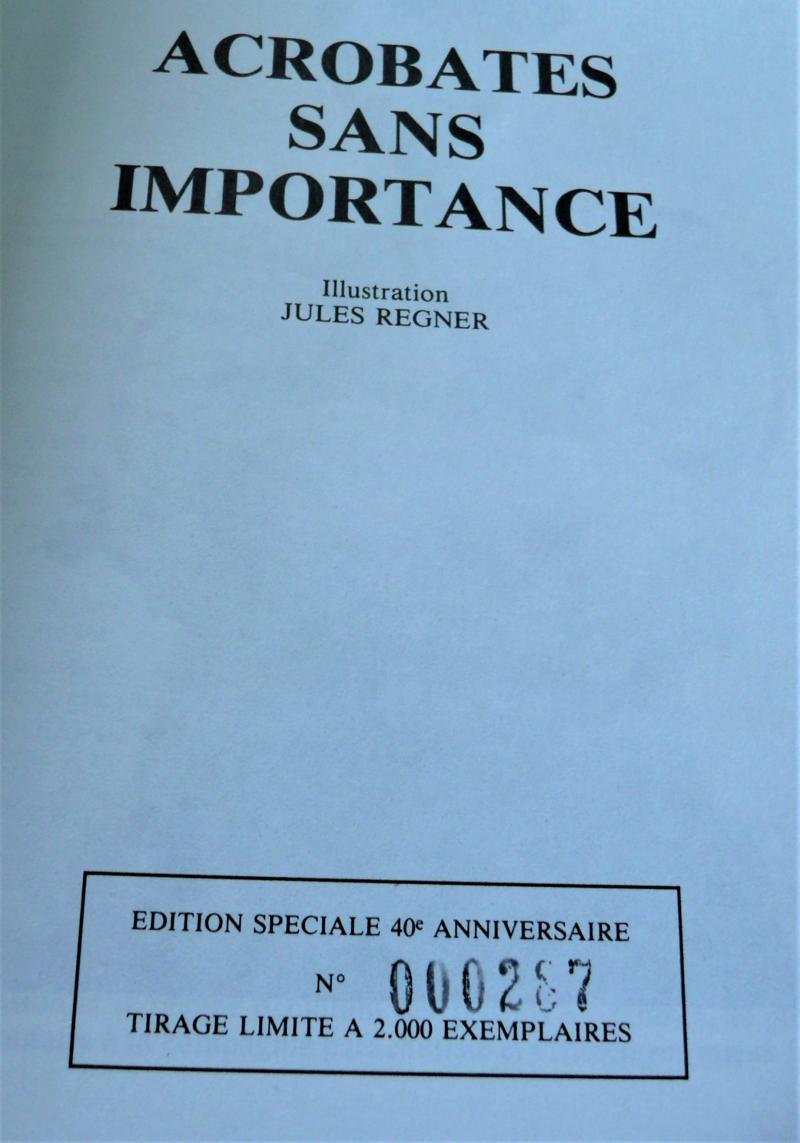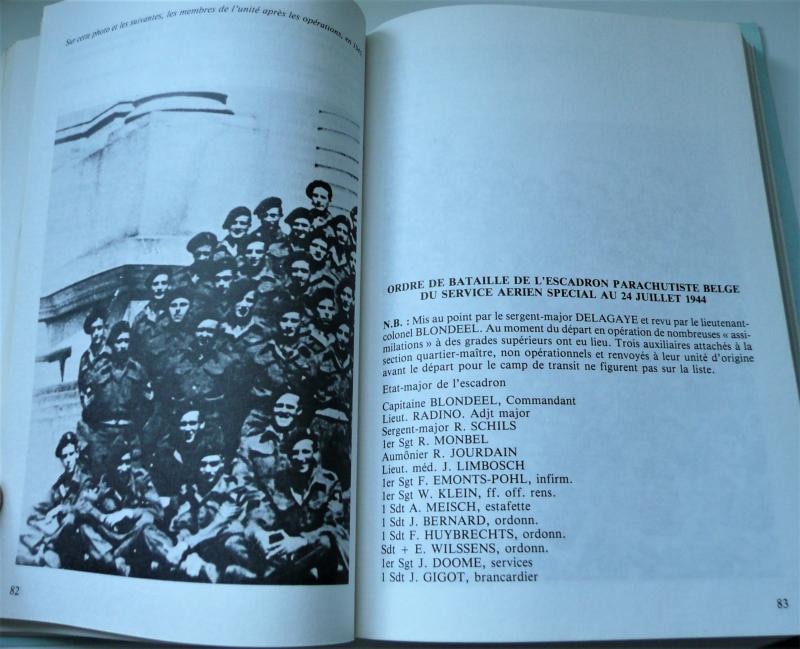WW2 Belgian SAS Special Forces Book - Acrobates Sans Importance - Les Paras Belges A rare book by Jean Temmerman concerning the Belgian Parachutists in the Liberation of Europe in WW2 - In French
Softback book, 222pp , signed by the Author, first edition, stamped copy 287 of a limited edition of 2,000 copies. Printed in Belgium in 1984. Some marks to rear of cover otherwise in good second hand condition with black and white illustrations, maps and rolls of the soldiers engaged in the various actions in July and December 1944. Forward by Eddy Blondeel, Commanding Officer of the SAS Parachutists.
In 1942, Blondeel commanded the Belgian company formed in Canada that was to embark in June of that year to Britain. In England his whole unit without exception volunteered to form the Belgian Independent Parachute Company. The men trained at various locations, including the parachute school at Ringway (near Manchester), the airborne centre at Hardwick and the glider base at Brize Norton. In 1943, the Belgians underwent a course based at Inverlochy Castle and completed their training in Scotland with other Paratrooper units. These included the 3rd and 4th French Parachute Battalions (the latter commanded by the one-armed Commandant Bourgoin) as well as 1st and 2nd (British) SAS.
In 1944, it was decided that the Belgian SAS Paratroopers were to be kept in reserve. Blondeel believed this would be for some operations in Belgium. That view changed when he was informed by Brigadier McLeod (Commanding officer of the SAS Brigade) that the Belgian authorities did not want the Belgian SAS to be the first into Belgium. Blondeel did not understand and visited the Belgian authorities in London to find out why. Brigadier McLeod also found the Belgian government's stance odd but as a result could now only plan for Belgian drops in France. It was decided a total of 14 squads of Belgian parachutists would be dropped in France. Blondeel grew tired of the politics going on in the background and gave an officer called Lt. Renkin a mission to get in contact with the Belgian resistance. Renkin was dropped in France and passed the frontier into Belgium. When Blondeel heard by radio that he had passed the frontier, he asked Brigadier McLeod, if he could be dropped with some men to join Renkin. When Blondeel pointed out the drop zone on a map the Brigadier's response was 'But, this drop zone is in Belgium'. 'Oh' Blondeel answered nonchalantly 'I hadn't noticed'. 'OK' the Brigadier replied, "In that case I didn’t notice either". So Blondeel was dropped with some men in Belgium at Gedinne. His squad was almost immediately in action with the resistance when he received a message from London stating that 'The Belgian government are not happy' but by that stage the deed had already been done. After the war Blondeel explained that he believed the reasons were largely down to Jean-Baptiste Piron as he had desperately wanted his Brigade to be the first in Belgium.
Regardless, shortly after this Belgian operation, the Squadron traveled to Brussels and Blondeel visited home where he saw his wife and two little daughters again for the first time in five years. This he would later recall was his best memory of the war. From 20–23 December 1944 a detachment of armed jeeps under Blondeel's command reconnoitered in the Marche area of Italy, under the general use of the 29th Armoured Brigade. From 28 December – 14 January 1945 they operated in the same role under the 6th Airborne Division with marked success. It was thanks to Blondeel's organization and training that the unit adapted so well to a new role and integrated effectively with British troops. He was determined that his Squadron should successfully accomplish any task offered to it.
The Squadron arrested numerous Nazi war criminals, including Joachim von Ribbentrop (in Hanover by Belgian SAS Sergeant Jacques Goffinet) and helped in the arrest of the Dönitz Government in Flensburg.
Please note the book is in French!
Will post overseas but would prefer to send to a UK address on account of the weight.
Comm StWi (327)
Code: 64500

